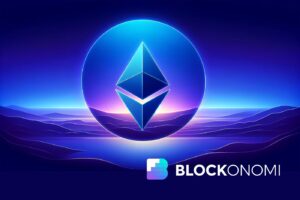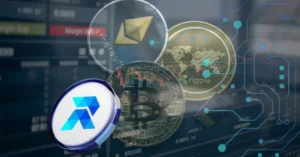Coinbase adds ‘ETH2’ despite tomorrow’s Ethereum upgrade postponing difficulty bomb

[ad_1]
Cryptocurrency exchange Coinbase has added a mirrored version of the Ethereum blockchain’s native token Ether (ETH) to its crypto price index, just ahead of a key network upgrade on Dec. 10.
Dubbed “ETH2,” the symbol appeared to have been tracking the original Ether market data synchronously. For instance, the cost to purchase ETH2 came out to be the same as that for ETH. Meanwhile, their market capitalization, volume, circulating supply, and price changes were also identical.
Coinbase is already promoting eth2 as a new coin? pic.twitter.com/C67UxooLU0
— Nuno (@nvcoelho) December 6, 2021
Nonetheless, unlike the original, the ETH2 token had no Trading Activity, Popularity Score, or Typical Hold Time, underscoring that its role — for now — is to merely track the ETH market data at least until mid-2022.

That is probably as ETH2 seems to have been posing as the native token of Ethereum’s ongoing upgrade, dubbed Ethereum 2.0, which expects to go live fully by June 2022. But the Coinbase’s index listing appears closer to “Arrow Glacier,” a fork that would give developers more time to prepare for Ethereum 2.0.
Before Ethereum 2.0
The Arrow Glacier update aims to delay a so-called “difficulty bomb,” an incentive hardcoded inside the Ethereum blockchain since its launch in 2015, which would make it difficult for people to mine Ether. In doing so, the BOMB, if triggered, would slow down the Ethereum network, for as long as it remains proof-of-work.
Tim Beiko, one of the core developers working on the Ethereum upgrade, noted that Arrow Glacier might be the last upgrade before Ethereum 2.0 goes live next year. Meanwhile, Coinbase appears to have been treating the Arrow Glacier fork as a confirmation that they would exist a new token called ETH2 after the Ethereum 2.0 upgrade.
In detail, Ethereum 2.0, also known as “Serenity,” would enable significant changes to its design, including a full-scale transition from energy-intensive Proof-of-Work (PoW) — also used by Bitcoin (BTC) — to Proof-of-Stake (PoS).
In the current version, nodes must validate every transaction to maintain Ethereum’s public ledger. But the Ethereum 2.0 upgrade would launch “sharding,” which would divide the network into various segments (called shards) and would randomly assign nodes to each shard.

That would remove the need for each node to scan the entire chain, theoretically improving the speed and costs required to maintain the network. Meanwhile, individual shards would share the transaction details with a so-called Beacon Chain, which serves as the backbone of Ethereum 2.0.
ETH2 is not a new crypto
Beacon Chain, which went live in December 2020, would validate the transactions on each shard, thus assisting the entire Ethereum 2.0 network reach consensus. It would also detect dishonest validators and initiate penalties by removing a portion of the validator’s stake from circulation.
Related: Vitalik Buterin outlines ‘endgame’ roadmap for ETH 2.0
At the core of Ethereum 2.0’s PoS design would be ETH (or ETH2), which primarily serves as a staking token for validators to participate in the network consensus and, in turn, to receive block rewards for it.
Beacon Chain’s deposit contract has received over 8.42 million ETH tokens from 55,300 unique depositors (validators) since its launch in December 2020.

That being said, ETH2 is not a new coin and would not change the ETH amount one holds. Instead, as Coinbase’s index listing suggests, ETH2 may end up becoming a rebranded version of the original Ether, without needing holders to swap one version for another.
The views and opinions expressed here are solely those of the author and do not necessarily reflect the views of Cointelegraph.com. Every investment and trading move involves risk, you should conduct your own research when making a decision.
[ad_2]
Source link










